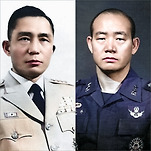<table id=cafe_editor_main_table_color bgColor='' cellpadding=0 cellspacing=0 border=0 width=100%><tr><td id=cafe_editor_main_table class=text><DIV class=artTitle>Bush, Hu express concern about North Korea</DIV>
<DIV class=newsDate>Thu May 5, 2005 03:35 PM ET </DIV><!-- article utilities box begins -->
<TABLE class=artUtilsTop cellSpacing=0 cellPadding=0 border=0>
<TBODY>
<TR>
<TD class=artUtils width="99%"><A href="xxjavascript:commonPopup('printerFriendlyPopup.jhtml?type=topNews&amp;storyID=8402261', 540, 525, 1, 'printerPopup')">Printer Friendly</A>&nbsp;| <A href="xxjavascript:commonPopup('emailPopup.jhtml?type=topNews&amp;storyID=8402261&amp;link=%2FnewsArticle.jhtml%3Ftype%253DtopNews%2526storyID%253D8402261%2526src%253Drss%252FtopNews', 540, 575, 1, 'emailPopup')">Email Article</A>&nbsp;| <A href="xxjavascript:commonPopup('http://www.icopyright.com/3.5398?icx_id=8402261', 580, 760, 1, 'purchasePopup')">Reprints</A>&nbsp;| <A href="http://www.reuters.com/newsrss.jhtml;jsessionid=M2BH4JE3SSQQCCRBAELCFFA">RSS
<IMG height=13 hspace=4 src="https://img1.daumcdn.net/relay/cafe/original/?fname=http%3A%2F%2Fwwwi.reuters.com%2FcomX%2Fimages%2FiconRSS.gif" width=35 align=top border=0></A>&nbsp; </TD>
<TD class=artUtils noWrap align=right><!-- pagination -->(Page 1 of 2) </TD>
<TD vAlign=top>
<IMG height=1 src="https://img1.daumcdn.net/relay/cafe/original/?fname=http%3A%2F%2Fwwwi.reuters.com%2FcomX%2Fimages%2Fclear.gif" width=10></TD>
<TD class=artUtils vAlign=top align=right width=88>&nbsp; </TD></TR></TBODY></TABLE><!-- article utilities box ends --><!-- article specifics box begins -->
<TABLE cellSpacing=0 cellPadding=0 width=158 align=left border=0>
<TBODY>
<TR>
<TD vAlign=top><!-- article images begins --><A href="xxjavascript:commonPopup('newsGalaxyPhotoPresentation.jhtml?type=topNews&amp;storyID=8402261&amp;index=0', 540, 560, 1, 'galaxyPhoto')">
<IMG class=medPicBorder xxonmouseover="this.className='medPicBorderOn';" xxonmouseout="this.className='medPicBorder';" alt="" src="https://img1.daumcdn.net/relay/cafe/original/?fname=http%3A%2F%2Fwwwi.reuters.com%2Fimages%2Fw148%2Famdf549802.jpg" border=0></A>
<IMG height=12 alt="" src="https://img1.daumcdn.net/relay/cafe/original/?fname=http%3A%2F%2Fwwwi.reuters.com%2FcomX%2Fimages%2Fclear.gif" width=10 border=0><BR><!-- article images end --><!-- top news headlines begins -->
<TABLE cellSpacing=0 cellPadding=1 width="100%" border=0>
<TBODY>
<TR>
<TD class=otherHead colSpan=2><A href="http://www.reuters.com/newsEarlierArticles.jhtml;jsessionid=M2BH4JE3SSQQCCRBAELCFFA?type=topNews" target=_top>Top News</A></TD></TR>
<TR>
<TD class=linkBullet vAlign=top width="1%">
<IMG height=5 alt="" src="https://img1.daumcdn.net/relay/cafe/original/?fname=http%3A%2F%2Fwwwi.reuters.com%2FcomX%2Fimages%2Fbullet.gif" width=3 border=0></TD>
<TD class=smHeadline vAlign=top width="99%"><A href="http://www.reuters.com/newsArticle.jhtml;jsessionid=M2BH4JE3SSQQCCRBAELCFFA?type=topNews&amp;storyID=8406090" target=_top>Blair wins UK election but majority slumps</A> </TD></TR>
<TR>
<TD class=linkBullet vAlign=top width="1%">
<IMG height=5 alt="" src="https://img1.daumcdn.net/relay/cafe/original/?fname=http%3A%2F%2Fwwwi.reuters.com%2FcomX%2Fimages%2Fbullet.gif" width=3 border=0></TD>
<TD class=smHeadline vAlign=top width="99%"><A href="http://www.reuters.com/newsArticle.jhtml;jsessionid=M2BH4JE3SSQQCCRBAELCFFA?type=topNews&amp;storyID=8404163" target=_top>NY blast could have link to Britain or Middle East</A> </TD></TR>
<TR>
<TD class=linkBullet vAlign=top width="1%">
<IMG height=5 alt="" src="https://img1.daumcdn.net/relay/cafe/original/?fname=http%3A%2F%2Fwwwi.reuters.com%2FcomX%2Fimages%2Fbullet.gif" width=3 border=0></TD>
<TD class=smHeadline vAlign=top width="99%"><A href="http://www.reuters.com/newsArticle.jhtml;jsessionid=M2BH4JE3SSQQCCRBAELCFFA?type=topNews&amp;storyID=8404748" target=_top>Bush demotes Army general in Abu Ghraib scandal</A> </TD></TR>
<TR>
<TD colSpan=2>
<IMG height=8 alt="" src="https://img1.daumcdn.net/relay/cafe/original/?fname=http%3A%2F%2Fwwwi.reuters.com%2FcomX%2Fimages%2Fclear.gif" width=10 border=0></TD></TR></TBODY></TABLE>
<DIV class=more><A href="http://www.reuters.com/newsEarlierArticles.jhtml;jsessionid=M2BH4JE3SSQQCCRBAELCFFA?type=topNews">MORE
<IMG height=10 alt="" hspace=3 src="https://img1.daumcdn.net/relay/cafe/original/?fname=http%3A%2F%2Fwwwi.reuters.com%2FcomX%2Fimages%2FarrowLnk.gif" width=9 align=absMiddle border=0></A></DIV>
<IMG height=12 alt="" src="https://img1.daumcdn.net/relay/cafe/original/?fname=http%3A%2F%2Fwwwi.reuters.com%2FcomX%2Fimages%2Fclear.gif" width=10 border=0><BR><!-- top news headlines ends --></TD>
<TD vAlign=top width=8>
<IMG height=10 alt="" src="https://img1.daumcdn.net/relay/cafe/original/?fname=http%3A%2F%2Fwwwi.reuters.com%2FcomX%2Fimages%2Fclear.gif" width=8 border=0></TD></TR></TBODY></TABLE><!-- article specifics box ends --><!-- article text begins -->By Adam Entous
<P>WASHINGTON (Reuters) - President Bush and Chinese President Hu Jintao expressed concern about North Korea on Thursday and vowed support for six-party negotiations aimed at stopping North Korea's nuclear weapons program, the White House said.
<P>Speaking by telephone, the leaders discussed the importance of the six-party talks and "reiterated their commitment to working together toward a nuclear-free peninsula while expressing concern about North Korea," White House spokesman Scott McClellan said.
<P>If Pyongyang refuses to come back to the table, the United States would consider taking the matter to the U.N. Security Council, where North Korea could face sanctions. "We will consult with our allies about what those next steps would be," a senior administration official said.
<P>Bush wants Hu to ratchet up the pressure on North Korea, but it was unclear whether Hu agreed to do so.
<P>There have been three inconclusive rounds of six-way talks, which include China, the United States, Japan, South Korea, Russia and North Korea.
<P>But North Korea has refused to meet for a fourth round, saying Washington must first drop what it called a hostile policy.
<P>"We hope North Korea will change their mind and come back to the talks," McClellan said. "They have shown an unwillingness to come back to the talks," he said.
<P>McClellan rebuffed calls for Washington to open bilateral talks with Pyongyang. "There's plenty of opportunity, through the six-party process, for the two countries to speak to each other, if they need to," he said.
<P>
<P>TAIWAN, TRADE DISCUSSED
<P>A Japanese newspaper, the right-leaning Sankei Shimbun, said on Thursday that Japan and the United States may start preparations in late May to refer North Korea to the U.N. Security Council over its nuclear weapons ambitions.&nbsp;&nbsp;&nbsp;</P>
<P>McClellan also said Hu briefed Bush on recent visits to China by opposition leaders from Taiwan. </P>
<P>"The president urged President Hu to continue working on ways to reach out to President Chen as the duly elected leader of Taiwan," McClellan said.
<P>He said dialogue is important and "we believe ultimately there needs to be continued dialogue with the duly elected leader in Taiwan and that means President Chen and his cabinet and that is the best way to continue to promote peace and stability in the cross-strait region."
<P>On trade, Bush and Hu "agreed on the importance of progress on bilateral trade and economic issues," McClellan said.
<P>He would not say whether Bush raised ongoing U.S. concerns that China should allow greater flexibility in its currency system, a point Treasury Secretary John Snow made on Monday.
<P>McClellan said Treasury officials have been in ongoing contact with Chinese officials about this issue.
<P>Washington is under pressure from U.S. manufacturers who claim China's pegged currency gives its goods an unfair price advantage. <!-- article text ends --><BR><BR><SPAN class=note>
<xSCRIPT>
var year = new Date()
document.write('&copy; Reuters ' + year.getFullYear() + ". All Rights Reserved." );
</xSCRIPT>
&copy; Reuters 2005. All Rights Reserved. </SPAN></P>
<P>&nbsp;</P>
<P><BR>&nbsp;</P></tr></td></table>
<!-- -->
카페 게시글
대학 강의/ 강의 동영상
Bush, Hu express concern about North Korea
익명
추천 0
조회 6
05.05.06 14:22
댓글 0
다음검색


